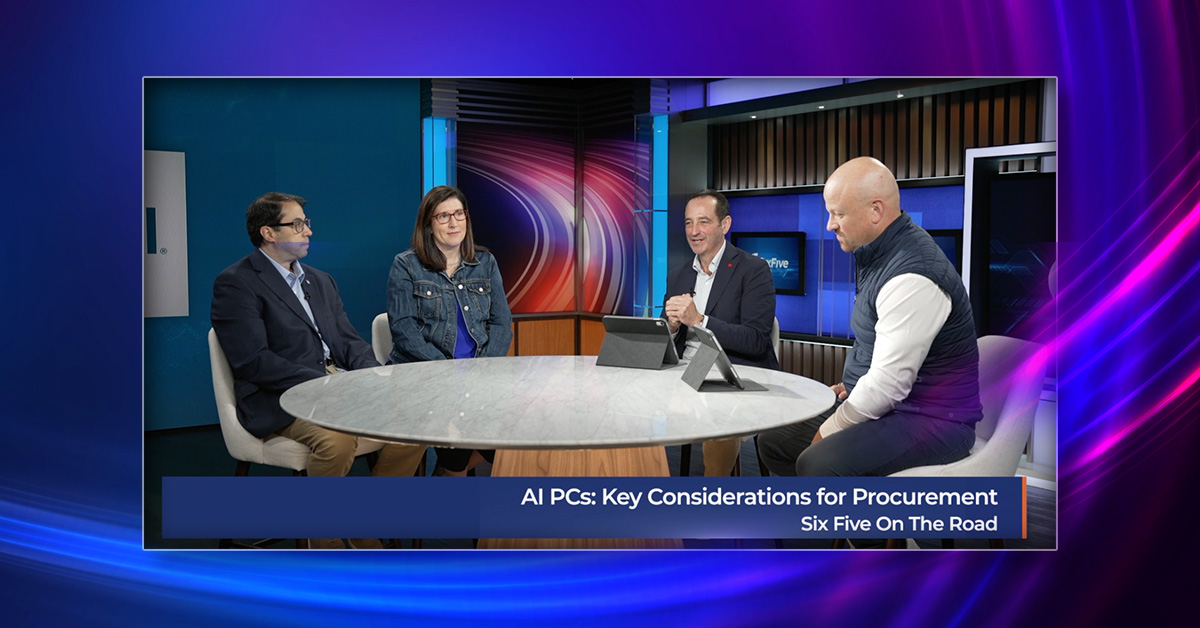- Modern Device Management
- DEX


Compucom Editorial Team
To compensate for frustrating tech problems, our recent survey revealed the average enterprise worker is personally spending hundreds on technology needed for the job — that is if they’re not quitting first.
Workers expect employers to provide the right technology to do their jobs, but not all enterprises are delivering on that experience yet. Our results uncovered some pain points:
- Many complained of aging or outdated tech, with more than a quarter (29%) working on devices that are at least 5 years old.
- Employees compare work technology to their personal devices and find it lacking: 42% said their home technology is better than at work.
- Two-thirds of our respondents admitted to working on their personal devices instead of company-provided tech.
Most employees (86%) told us they expect their company to spend between $500-1,000 per person on technology. But our survey found that it’s more likely the employees who foot the bill.
To get the tech they want or need, enterprise workers reported personally spending an average of $563 on technology for their job. For context, that’s more than what the average American spends on groceries for a month.
While many are bracing for economic uncertainty, a hefty or unexpected bill — say the cost of a new laptop and external monitor — could have rippling effects on employee morale and engagement.
The misalignment in expectations could also explain another survey insight: more than half of respondents said they’d been so frustrated by bad workplace tech, they’ve switched jobs (11%) or have applied for other work (42%).
The Human Cost of Poor Technology Experiences
To retain their best talent, HR and IT teams need to work together to create a workplace that delivers a stellar tech experience.
Business leaders must develop technology policies that empower hybrid employees with technology choice and workplace flexibility.
“Technology is at the core of an enhanced employee experience. HR and IT must be more closely aligned than ever before when it comes to forming the guiding principles for technology use.”
With today’s hybrid workforce relying on technology more than ever, tech is no longer just the realm of IT. Likewise, enhancing the overall employee experience is everyone’s responsibility. The entire organization plays a key role in building an inclusive culture that yields happy, engaged and productive employees,” says Rice. “It’s in employers’ best interest to take the time to listen to employee challenges, find the right tech solutions and empower them to provide feedback that leads to a better employee experience.”
RecenT

What’s New with Windows 11

The Clock is Ticking for Windows 10 — Plan for Windows 11

Windows 10 EOS: Should You Consider 5G-Enabled Windows 11 Laptops?

AI PCs: Key Considerations for Procurement

Case Study: Helping a Major Retailer Reduce Store and Distribution Center Downtime

Unlocking Data’s Potential: 3 Strategies That Drive Results
TOPICS
Hybrid Employees Spend a Shocking Amount on Tech for Work
- Modern Device Management
- DEX

Compucom Editorial Team
To compensate for frustrating tech problems, our recent survey revealed the average enterprise worker is personally spending hundreds on technology needed for the job — that is if they’re not quitting first.
Workers expect employers to provide the right technology to do their jobs, but not all enterprises are delivering on that experience yet. Our results uncovered some pain points:
- Many complained of aging or outdated tech, with more than a quarter (29%) working on devices that are at least 5 years old.
- Employees compare work technology to their personal devices and find it lacking: 42% said their home technology is better than at work.
- Two-thirds of our respondents admitted to working on their personal devices instead of company-provided tech.
Most employees (86%) told us they expect their company to spend between $500-1,000 per person on technology. But our survey found that it’s more likely the employees who foot the bill.
To get the tech they want or need, enterprise workers reported personally spending an average of $563 on technology for their job. For context, that’s more than what the average American spends on groceries for a month.
While many are bracing for economic uncertainty, a hefty or unexpected bill — say the cost of a new laptop and external monitor — could have rippling effects on employee morale and engagement.
The misalignment in expectations could also explain another survey insight: more than half of respondents said they’d been so frustrated by bad workplace tech, they’ve switched jobs (11%) or have applied for other work (42%).
The Human Cost of Poor Technology Experiences
To retain their best talent, HR and IT teams need to work together to create a workplace that delivers a stellar tech experience.
Business leaders must develop technology policies that empower hybrid employees with technology choice and workplace flexibility.
“Technology is at the core of an enhanced employee experience. HR and IT must be more closely aligned than ever before when it comes to forming the guiding principles for technology use.”
With today’s hybrid workforce relying on technology more than ever, tech is no longer just the realm of IT. Likewise, enhancing the overall employee experience is everyone’s responsibility. The entire organization plays a key role in building an inclusive culture that yields happy, engaged and productive employees,” says Rice. “It’s in employers’ best interest to take the time to listen to employee challenges, find the right tech solutions and empower them to provide feedback that leads to a better employee experience.”
Recent Blogs

What’s New with Windows 11

The Clock is Ticking for Windows 10 — Plan for Windows 11

Windows 10 EOS: Should You Consider 5G-Enabled Windows 11 Laptops?

AI PCs: Key Considerations for Procurement

Case Study: Helping a Major Retailer Reduce Store and Distribution Center Downtime




